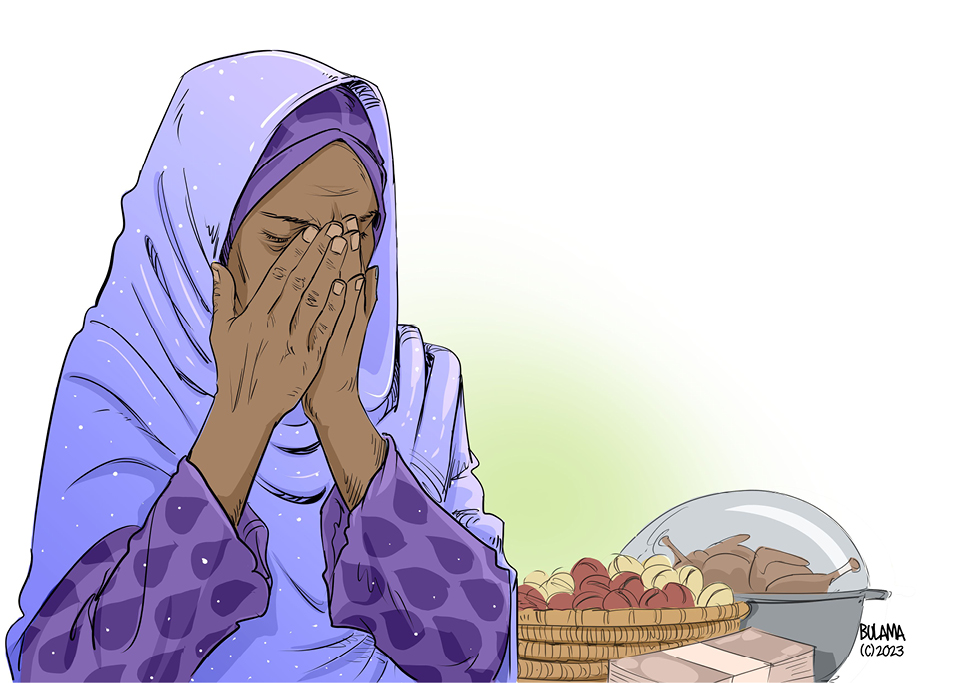Whoever has lived in northern Nigeria in the last 15 years knows that the region has been experiencing some serious challenges. Horrendous acts of violence by religious extremists and criminal elements have rendered the human condition and the existential space most horrific. Poverty and ignorance now bear the face of the once vibrant North. Amidst this state of atrophy is the spate of divorced and abandoned women subjected to begging for food and alms to feed themselves and their children.
Marriages do fail for a thousand and one reasons. While there might not be guarantees against divorce, women can have dignified lives in the event of one. Having an education and a means of livelihood places the woman in a better position to cater for herself within reasonable means. Moreover, the educated woman stands to benefit herself, her family and society. It therefore behoves the parents who are blessed with the girl child to nurture and prepare her for life.
We have a sterling example of the Prophet Muhammad for a region and a people that mostly profess Islam. When some pre-Islamic tribes of Arabia practised femicide because they regarded the girl child as a burden on the family, he banished this evil practice and urged his followers to treasure their daughters as gifts from God. He (S.A.W) further urged them to educate the girls. He set the example in his household, educating his wives and daughters, some of them becoming great sources of Hadith.
History has also recorded that Othman bn Fodio, the leader and founder of the Sokoto Caliphate in what is today Northern Nigeria educated the women of his household. His daughter Nana Asma’u, is one of the most outstanding scholars of her time. A brilliant poet, teacher and women’s rights advocate, she lived her life composing great poetry, teaching women and even serving as an advisor to her brother, Sultan Muhammad Bello, who ruled from 1817-1837.
You see, the good thing about history, that much-neglected subject, is that it freezes time and preserves it for us to see if we care to. The example of the Prophet and Othman bn Fodio teaches us that Islam promotes women’s education. Consequently, the astonishing numbers of girls out hawking on the streets of Northern Nigeria, added to the number of divorced and abandoned women, contradict the teaching of Islam.
We, therefore, need to ask ourselves why aren’t we protecting our treasures. I suppose that should a family have some carats of gold or diamond in its possession, it would build vaults and fortresses to secure them. If girls are the treasures the Prophets say they are, why are our gold and diamonds out on the streets hawking, begging, sometimes with children in tow, for food to eat? Why aren’t they in schools, like Nana Aisha (RA) teaching the Hadith or Nana Asma’u, teaching the ‘Yan taru?
Many fathers in this region have adopted the ways of those pre-Islamic Arab tribes, committing femicide by killing the dreams and futures of their God-given treasures. These types of fathers do not appreciate the gift of daughters and make no plan for their lives and future.
Over the years, I have seen men whose only interest is to marry and have children without any plan of securing the future of these children. If they have male children, they exploit the Almajiri system to shake off their responsibilities towards them. Yet, boys still have a slight advantage over the girls. Being boys, they survive through begging and menial jobs. If they are lucky and have some hidden talents, they might even become wealthy artists or merchants.
The story is not the same for the girl. Due to her physiological composition, she is not likely to strike out on her own and make progress. In this situation, the easier option is to marry her off as soon as she reaches puberty. These parents ignore the injunction of the prophet to educate the daughters but embrace the one to marry them off. They choose an easier route out of the responsibilities placed on them.
Consequently, girls that are ill-prepared for life are bundled into marriage and more often than not, stumble and fall out of it quicker than they went in.
That Northern Nigeria has an alarming divorce statistic is no longer news. For example, an Aljazeera’s Reporter’s Notebook (November 2023), reveals that the region has one of the highest divorce rates in West Africa, with one out of three marriages dissolving in the first three years. What is news is the prevalence among less/non-educated, younger girls. I find this newsworthy because it contradicts the erroneous belief in some quarters that education corrupts morals and educated women are not desirable marriage material, as they say.
Divorce is a serious problem. It has far-reaching consequences for society and the individuals involved, especially women. Many women are divorced without any form of compensation. They are sent out on a doomed journey, in which the only sure thing to do is contract another marriage without delay. I have come across many women, under the age of 30, that have gone through six or seven marriages and have had eight children across homes. These are not happy women; they are separated from their children, have no viable means of income to sustain themselves, and more often than not, have no place to return to in their father’s homes.
In a move to address the menace of divorce, the government of Kano State has come up with a scheme to reduce the number of divorced women. Understandably so, being home to the largest number of divorcees in Nigeria (13th, 2023 Aljazeera report). This scheme, titled “Auren Zaurawa”, is a massive sponsored wedding of divorcees which also involves a match-making arrangement. The couples are given beds, some food items and other paraphernalia to start a home. This is commendable. However, I believe it is only ameliorative as it does not address the core of the problem, as it has no guarantee against divorce.
To address this problem, we need to go back to the root, which is the family. To do this, Islamic teachers have a crucial role to play in sensitizing people on the need to appreciate their daughters, make good plans to educate and secure their future and stop giving them out in marriage simply because it is the easier option.
The Ulama must also take to seriously teaching and counselling men, holistically, on the religious injunctions concerning marriage and raising children. It is sad to see that many Ulama, including women preachers now famous on social media, only stress the pleasurable aspects of marriage, neglecting the parts about responsibilities in the union. They must make them aware that marriage is not just a bed of pleasures. Parents must take care of their daughters, nurture them, and give them a means of livelihood, before shipping them off to someone else’s home, especially in this era of “what does the wife bring to the table”.
Zaynab, PhD, wrote from the University of Abuja

 Join Daily Trust WhatsApp Community For Quick Access To News and Happenings Around You.
Join Daily Trust WhatsApp Community For Quick Access To News and Happenings Around You.
